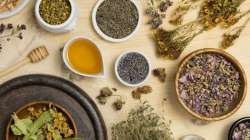How to balance your 'doshas' during summer?
Each of the 'doshas' - VATA, PITTA, and KAPHA - has a specific function in our body and is supposed to be present at an optimum level to determine perfect health, and any imbalance in these 'doshas' can harm our health.

'Doshas' are biological energies found in our bodies and minds made up of five major elements (Panchabhutas), which are linked to our five senses and subtle actions. Doshas govern our physical, physiological, mental, and emotional processes and define our optimal health. Each of the 'doshas' - VATA, PITTA, and KAPHA - has a specific function in our body and is supposed to be present at an optimum level to determine perfect health, and any imbalance in these 'doshas' can harm our health.
Below is how 'doshas' are formed from the five great elements - EARTH, FIRE, WATER, AIR & ETHER.
. AIR and ETHER together form VATA
. FIRE and WATER forms PITTA
. WATER and EARTH make KAPHA
These three 'doshas' can be found in varying proportions in everyone, and their proportions can change depending on the climate and food habits.
Changes in 'Doshas' during summer
Because of the scorching heat outside, our bodies feel hotter internally as well. The fire and air elements are slightly on the higher side, which increases both Pitta and Vata 'doshas'. During this time, our digestive fire and vitality are also at their lowest. Because summer is the season of Pita aggravation, one should consume more pita-calming foods during this time. Foods that are cooling, liquid in consistency, sweet in taste, moist and oily are recommended to calm Pita. Avoiding foods that are spicy, hot, sour, or salty should be avoided. During the summer season, milk, ghee, naturally sweet foods, coconut water, jeera water rice preparation, and so on are recommended to balance the 'doshas'.
Excess Pita 'dosha' is managed during the summer by foods with three prominent tastes in our food that are sweet, bitter, and astringent in nature. Milk, root vegetables, most grains, fresh yoghurt, and other naturally sweet foods are excellent pita pacifiers. Aside from these bitter foods, other pita-friendly foods include kale, dandelion, dark chocolate, and spices such as cumin, neem leaves, turmeric, and others.
The bitter taste is also very refreshing to the body. Bitter foods also benefit the blood, satisfy thirst, balance the appetite, support digestion, and absorb moisture and excess pitta. Beans, fruits, vegetables, apples, berries, broccoli, and other cruciferous vegetables, in addition to these, help to reduce summer stress.
While we should focus on some of the foods listed above, we should also try to limit certain foods that can aggravate the summer's predominantly high 'dosha'. These foods are either overly pungent, sour, or salty. Foods like chillies, onions, and spicy spices should be avoided or limited. Fermented foods, grapes, pineapple, and foods that cause a burning sensation in the stomach should be avoided in our daily diet. Salad dressings containing lime, on the other hand, can be used in place of traditional salad dressings. Another element that can both increase and decrease inflammation in the body is salt.